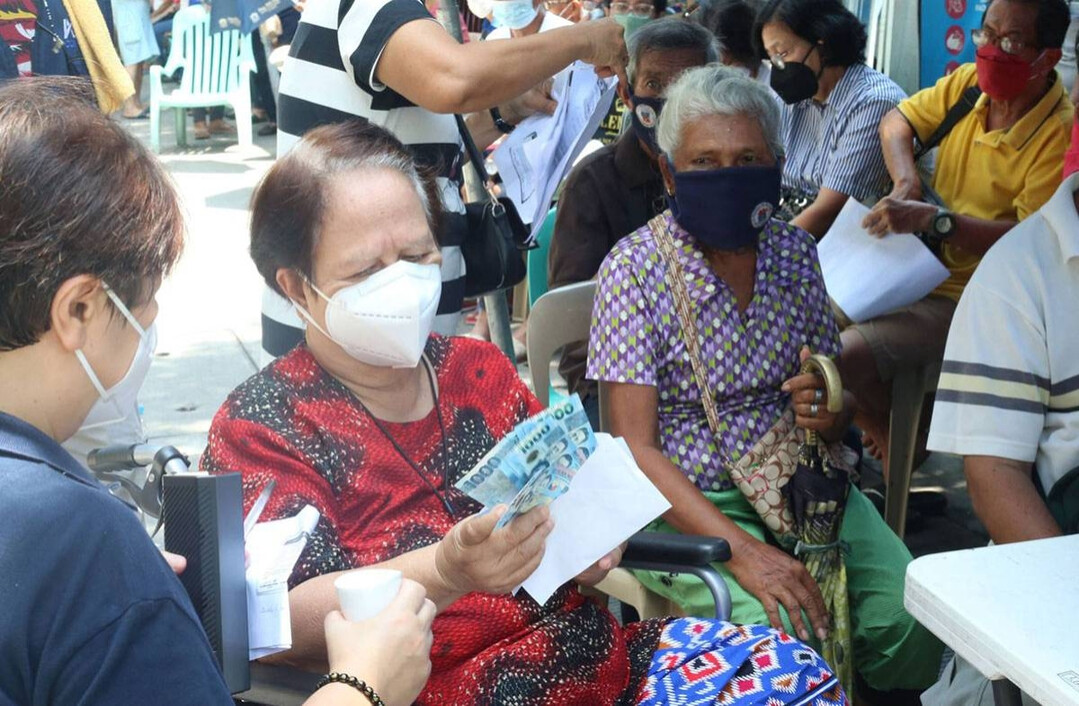
Last week, two pieces of good news were delivered to the elderly population in the Philippines. One was the Social Security System (SSS)'s announcement of a pension increase, and the other was President Ferdinand Marcos Jr.'s mention of a "zero-balance billing" policy for government-designated hospitals during his State of the Nation Address. The long-awaited improvements in social services and welfare are seen as a signal of genuine social progress, bringing about positive changes not only for the elderly but for all Filipinos.
SSS Pension Hike: Ensuring Fairness and Sustainability
The SSS announced a multi-year pension increase without raising contributions, which is welcome news for approximately 4 million retirees. According to the SSS, the minimum pension will increase from the current 2,200 pesos (approximately 51,000 KRW) to 2,928.20 pesos (approximately 68,000 KRW) by 2027, while the maximum pension will rise from 22,137.25 pesos (approximately 515,000 KRW) to 29,464.28 pesos (approximately 685,000 KRW).
Representative Rodolfo "Omong" Ordanes of the Senior Citizens party-list described the increase as "fair and equitable because it is not a blanket increase but is calculated based on the length of service and salary increments during employment." This approach more justly reflects the contributions retirees have made to society while also demonstrating SSS's prudent financial management, which aims to ensure the fund's sustainability by gradually increasing pensions over a three-year period.
'Zero-Balance Billing' and Expanded Coverage: Strengthening the Right to Health
Another piece of good news was the "zero-balance billing" policy announced by President Marcos. This policy applies to patients admitted to general wards in Department of Health-designated hospitals and also expands the coverage package for kidney transplant patients. According to the Philippine Health Insurance Corporation (PhilHealth), this policy applies to all Filipinos, not just low-income individuals, and does not require additional documents or review processes. In particular, kidney transplant coverage will be significantly expanded from 600,000 pesos to 2.1 million pesos (approximately 4.88 million KRW), giving great hope to the elderly, as emphasized by Representative Ordanes.
In the face of soaring prices and the cost of living, these improvements in medical benefits are a lifeline for countless Filipinos, especially the elderly. They will be of great help to those who find it difficult to afford proper medical treatment.
The Road Ahead: Accelerating Welfare Improvements
While these developments are to be welcomed, they should not stop here. This should instead be the starting point for improving social services for all Filipinos, especially the elderly.
The Philippines' aging population is accelerating, and as a nation, we have a responsibility to improve the quality of life for all our citizens so they can live with dignity. This includes helping them maintain their dignity even after retirement.
Accordingly, a bill is being proposed to extend the monthly 1,000 peso (approximately 23,000 KRW) social pension to all senior citizens. This is an issue that must be passed to recognize and honor the hard work of seniors who have contributed to society for decades. Additionally, healthcare services should not be limited to treating illnesses but should be expanded to include preventive care for the elderly. To achieve this, the Philippine Health Insurance Corporation needs to designate more hospitals as "zero-balance billing" institutions to increase nationwide access to healthcare.
The elderly in the Philippines have already done their part as members of society. Now is the time to repay their dedication, and these welfare improvements will be a crucial first step toward achieving that goal. It is hoped that these movements will continue, and the Philippines will evolve into a country that guarantees a safer and more dignified life for its elderly population.
[Copyright (c) Global Economic Times. All Rights Reserved.]






























